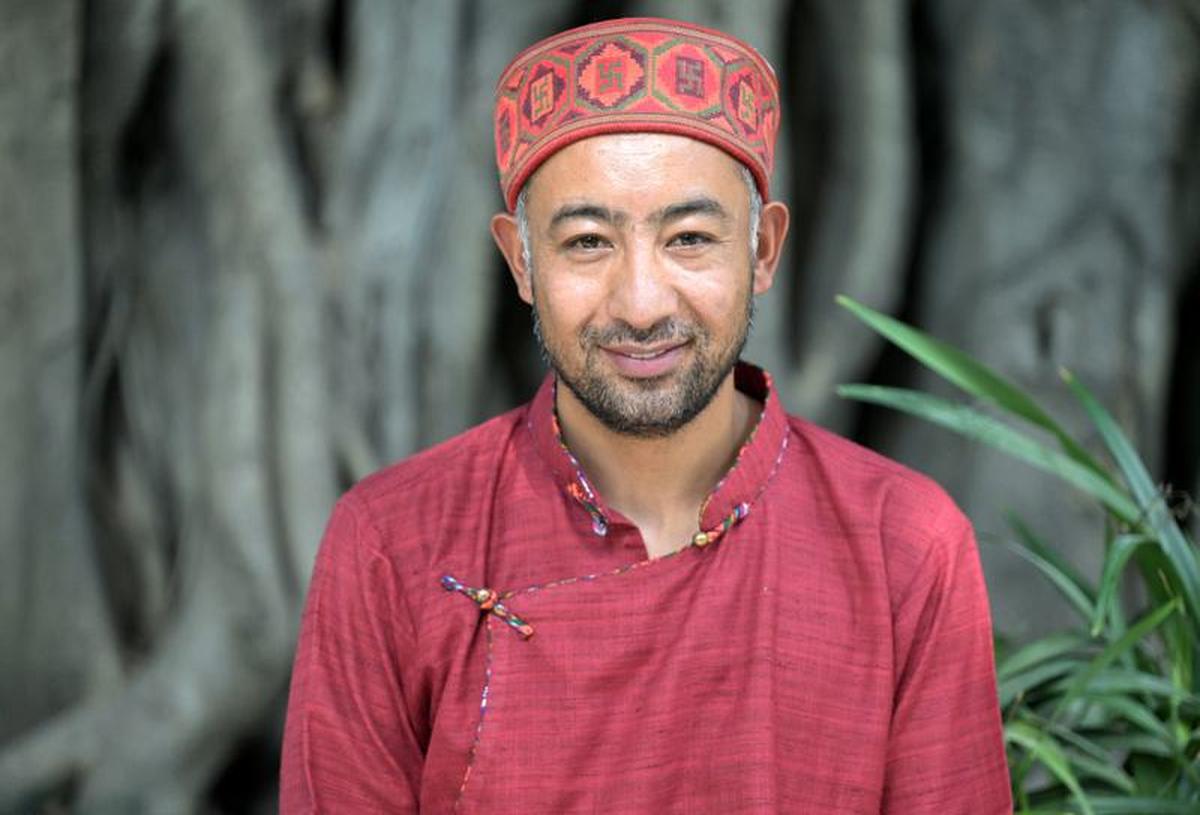Padma Stanzin, who walked with climate activist Sonam Wangchuk from Ladakh to Delhi over a month seeking the inclusion of the Union Territory in the Constitution’s Sixth Schedule, says, “We’re returning to our homes with more hope than what we started with.”
The 150 protesters, who have been camping outside the Ladakh Bhawan for nearly three weeks, are preparing to leave for their homes on Friday after the Ministry of Home Affairs agreed to talk to them about their demands in December.
“When we left Leh, all we knew was that we wanted to talk to the government and place our demands. Now that they have agreed to discuss the issues, we’re happy. However, the battle for our rights will continue,” says the 26-year-old.
Like many other young protesters in the camp, Mr. Stanzin is unemployed and worried about his prospects. He has completed his BA in Political Science and is set to finish his MA in Sociology from IGNOU’s distance education programme in December. Despite his educational qualifications, Mr. Stanzin has struggled to find stable employment, with most of the positions filled up for Class 4 employees. To make ends meet, he works part-time as a driver for Oil and Natural Gas Corporation and manages catering services. A member of the Ladakh Student Union, he has been actively involved in protests and is now preparing for the Union Public Service Commission exam.
Others are distressed over the impact of climate change on the agriculture and tourism sectors in the UT. Many of these concerns have become even more urgent, say protesters, after the special status of Jammu and Kashmir under Article 370 of the Constitution was read down by Parliament on August 5, 2019, and Ladakh became a UT without a legislature.

Mehdi Shah
| Photo Credit:
SHASHI SHEKHAR KASHYAP
Mehdi Shah, 33, from Turtuk, which is located near the Line of Control, says, “We don’t have a Legislative Assembly, so there is no public representation. We are demanding safeguards under the Sixth Schedule so that we get a degree of autonomy to make our own laws and decide what to do with our natural resources.”
Mr. Shah works as a freelance educator and sometimes as a farmer to support his family. He says floods over the past few years due to melting glaciers have affected everyone’s livelihood in his hometown.
“Agriculture is the primary occupation of most Ladakhis. We mostly grow wheat, barley, and buckwheat. However, climate change has been impacting the flow of water in our streams. There is not enough water to irrigate the fields and tend to our cattle,” he says.

Liyaqat Loshay
| Photo Credit:
SHASHI SHEKHAR KASHYAP
Liyaqat Loshay, 26, a native of Kargil who graduated with a BA (Hons.) in 2021, has spent the past three years looking for a full-time job. He finally found one as an insurance agent in the last week of August but left it to join the protesters led by Mr. Wangchuk on September 1.
“The entire youth [of Ladakh] has come out to protest against unemployment while our parents are at home by themselves. Why should the government not consider our demands?” he says.
Mr. Loshay adds that he is anxious that his brothers — one working on his PhD while the other studying MBBS — will be forced to move out of Ladakh to earn a living, given the employment scenario there.

Tsering Stobgyal
| Photo Credit:
SHASHI SHEKHAR KASHYAP
‘Unilateral decisions’
Tsering Stobgyal, from Nimoo, a small village with a population of nearly 1,000 located 35 km away from Leh, says the administration has not worked towards developing sports facilities in the region.
“There is an entire generation in Ladakh which has tremendous interest in sports, especially cricket, but there are not enough coaching facilities there,” says Mr. Stobgyal.
Not only has the bureaucracy in the UT failed to address the aspirations of Ladakhis, but he says it has also made some crucial decisions without taking the residents in confidence.
“Because we don’t have representatives to fight for us, the administration’s decisions are simply imposed on us. They even decided to set up thermal power plants in Ladakh without consulting us,” said the 35-year-old.
The Leh Apex Body, a civil society organisation, along with the Kargil Democratic Alliance, has been raising its voice for the past four years seeking Ladakh’s inclusion in the Sixth Schedule, employment opportunities for the local people, and a Rajya Sabha seat and a Lok Sabha seat each for Leh and Kargil.
Published – October 25, 2024 01:51 am IST





